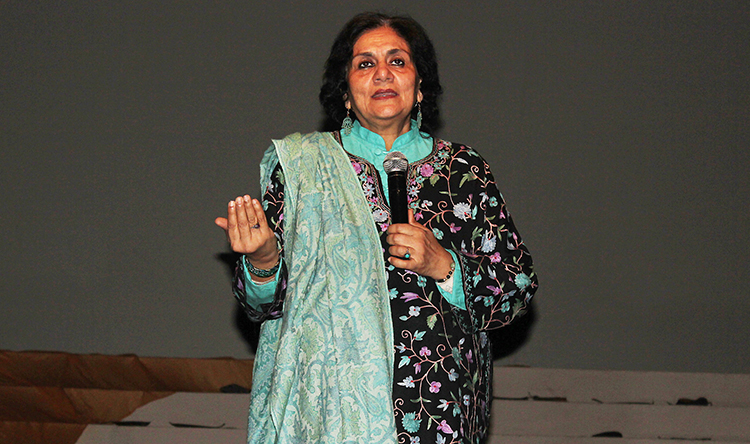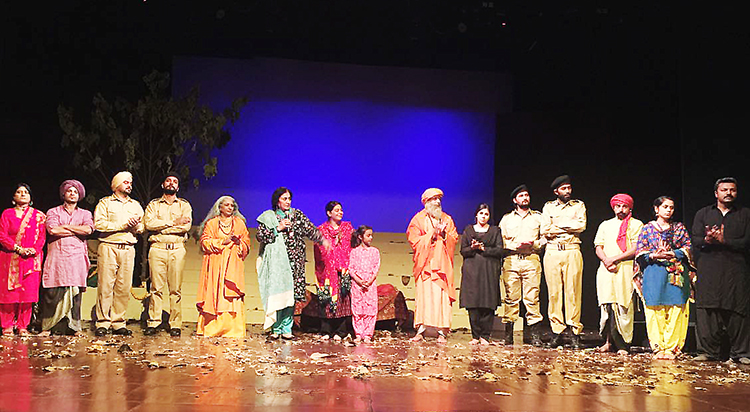Written by: Dr. Dushka H. Saiyid
Posted on: December 14, 2016 |  | 中文
| 中文
Jogi Mukhtar Nath with Kausar and her daughter in 'Dukh Darya'
Ajoka Theatre is giving free performance of three plays at the PNCA: Dukh Darya on the 13th, Kabira Khara Bazaar Mein on the 14th and Bala King on the 15th of December. Unfortunately the word has not got out, and the hall was half empty at the performance of Dukh Darya, depriving many a theatre aficionado of this treat.
Dukh Darya is based on the true story of an Azad Kashmiri girl who tried to commit suicide by jumping into a river to escape harassment by her husband and in-laws, who accused her of infertility. Ironically enough, not only does she survive, but gives birth to a daughter after she is jailed and raped in Indian-occupied Kashmir. This story caught the attention of Indian and Pakistani media in 2003, and human rights groups on both sides of the border came to her rescue, as she tried to return to Pakistan with her daughter. The impediment was that her daughter was born in India, and the law did not allow her to come to Pakistan.
Woven into the play by Shahid Nadeem’s interesting script are the parallel stories of Meera Mai, who was separated from her daughter during Partition, and Sita’s exile by Ram, because a washerman cast aspersions on Sita’s purity. The theme is that from the time of Sita, Partition and into the twentieth century, women are made sacrificial lambs and are victims of misplaced social norms and stigmas.

Director Madeeha Gauhar introducing the play
The actors gave compelling performances under Madeeha Gauhar’s skillful direction. Uzma Hassan gave a good portrayal of Kausar, trapped in an ugly situation, and Usman Raj was convincing as the Jogi who gives her shelter in his ashram, while Samina Butt fit the role of a worn, dejected but wise Meera Mai. Jogi Mukhtar Nath, as his name testifies, is a symbol of the co-existence and the intermingling of Hinduism and Islam. Ajoka’s recurrent theme is the commonalities between the two religious communities, rather than what separates them. It is a message of peace and co-existence at a time when the popular uprising in Indian Kashmir, which started after Wani’s assassination in July, has left hundreds dead, and many thousands of youngsters injured by pellet guns.

A clip from the play
You may also like: